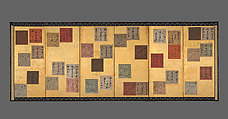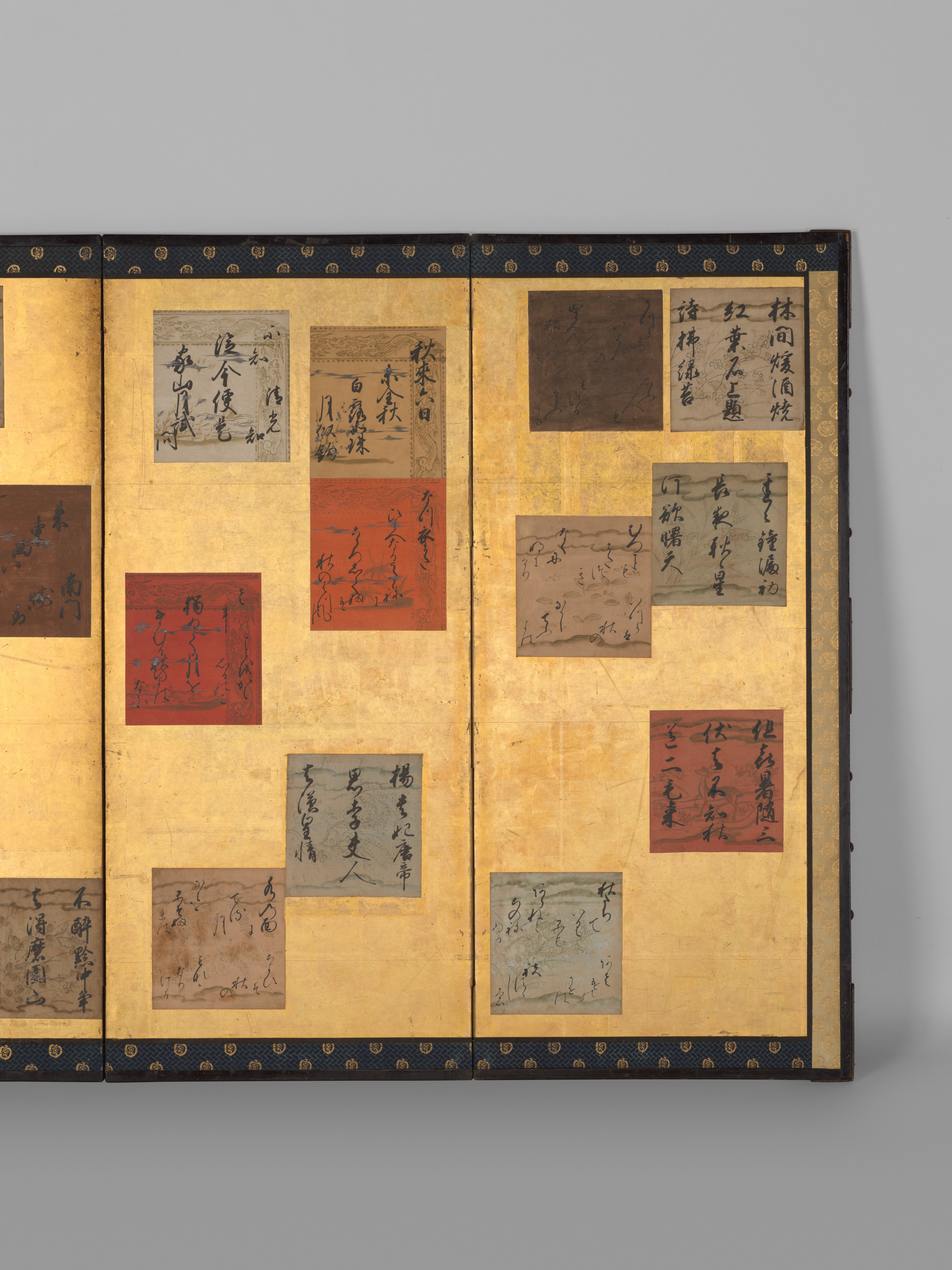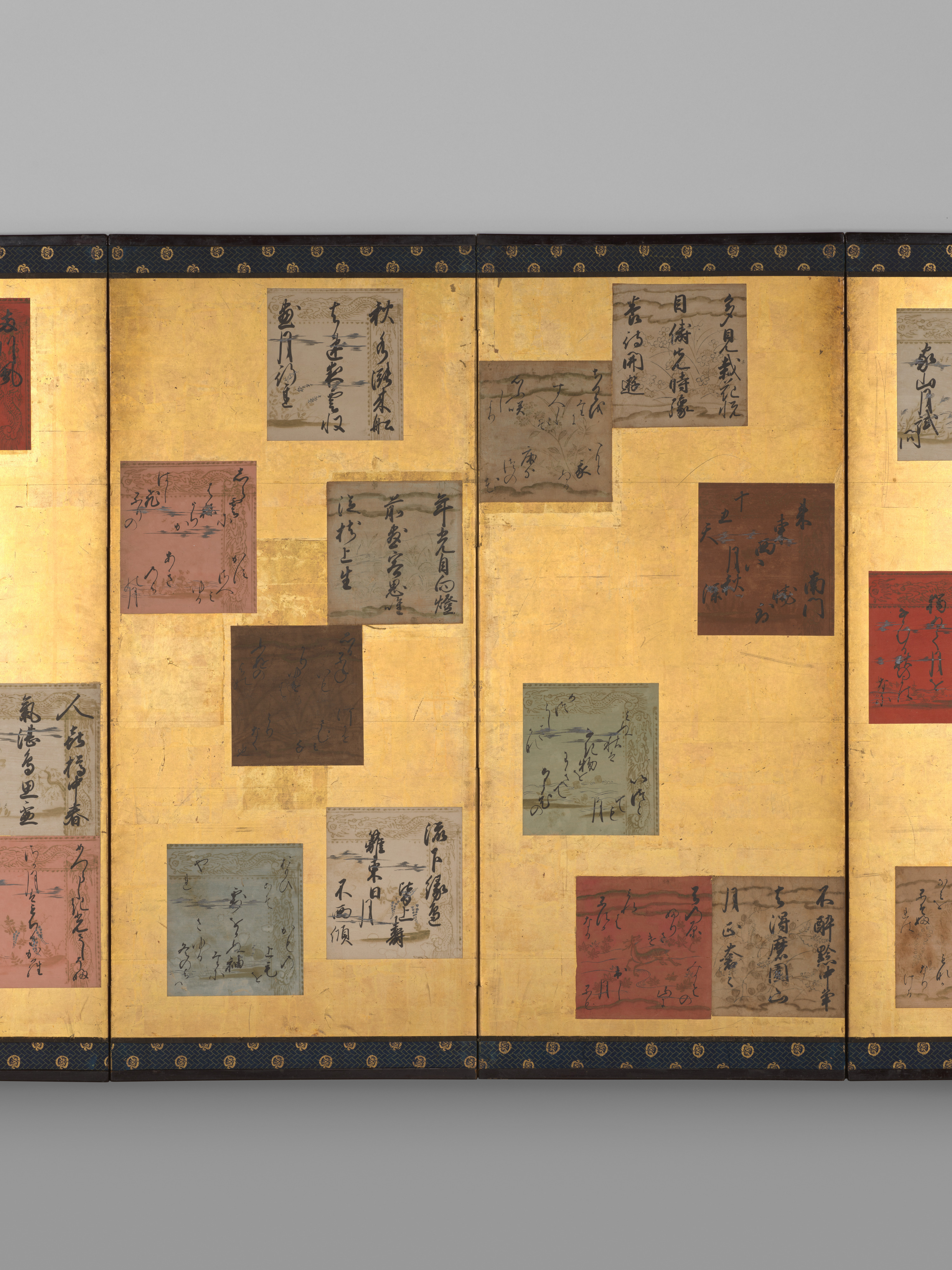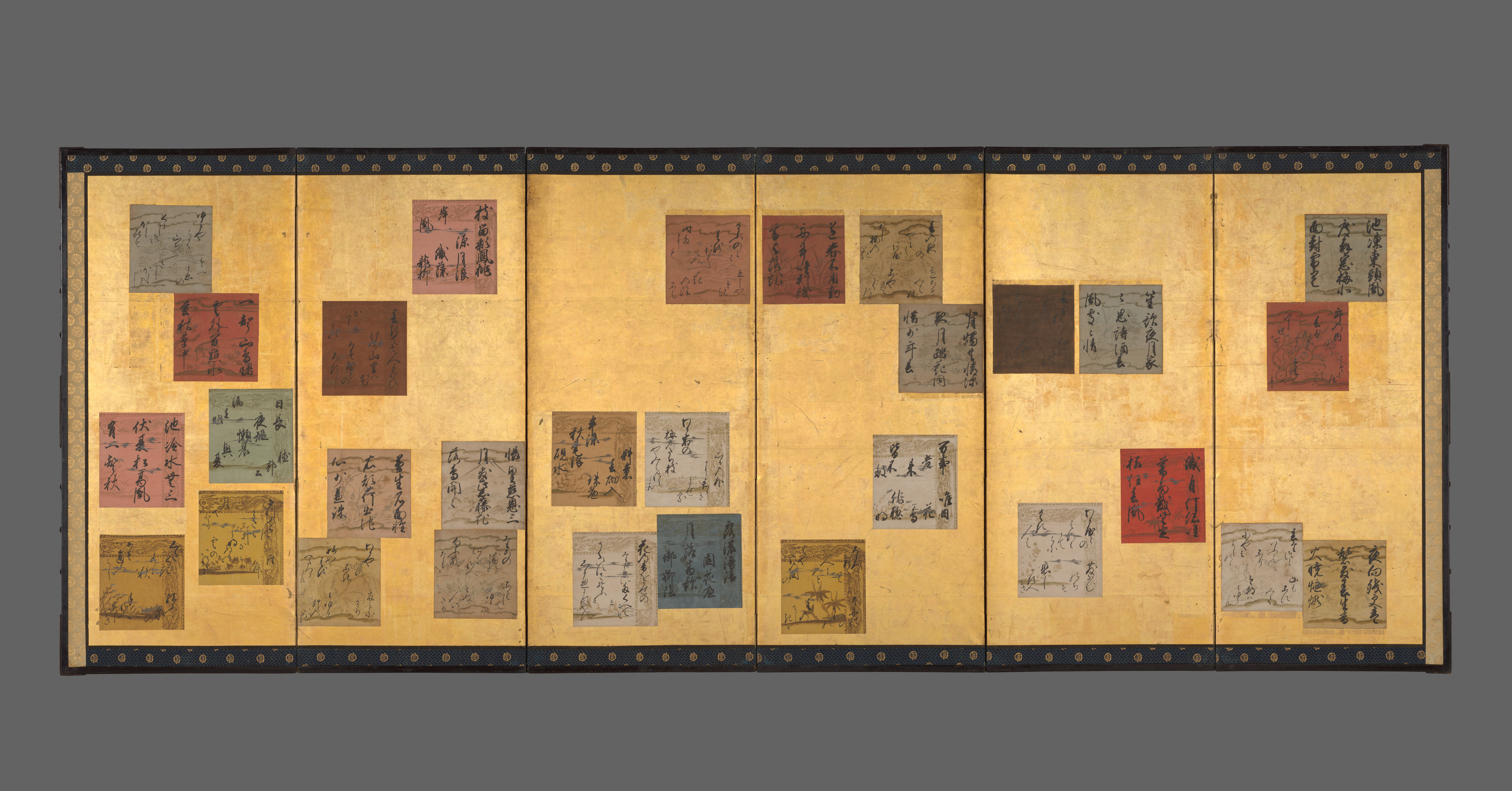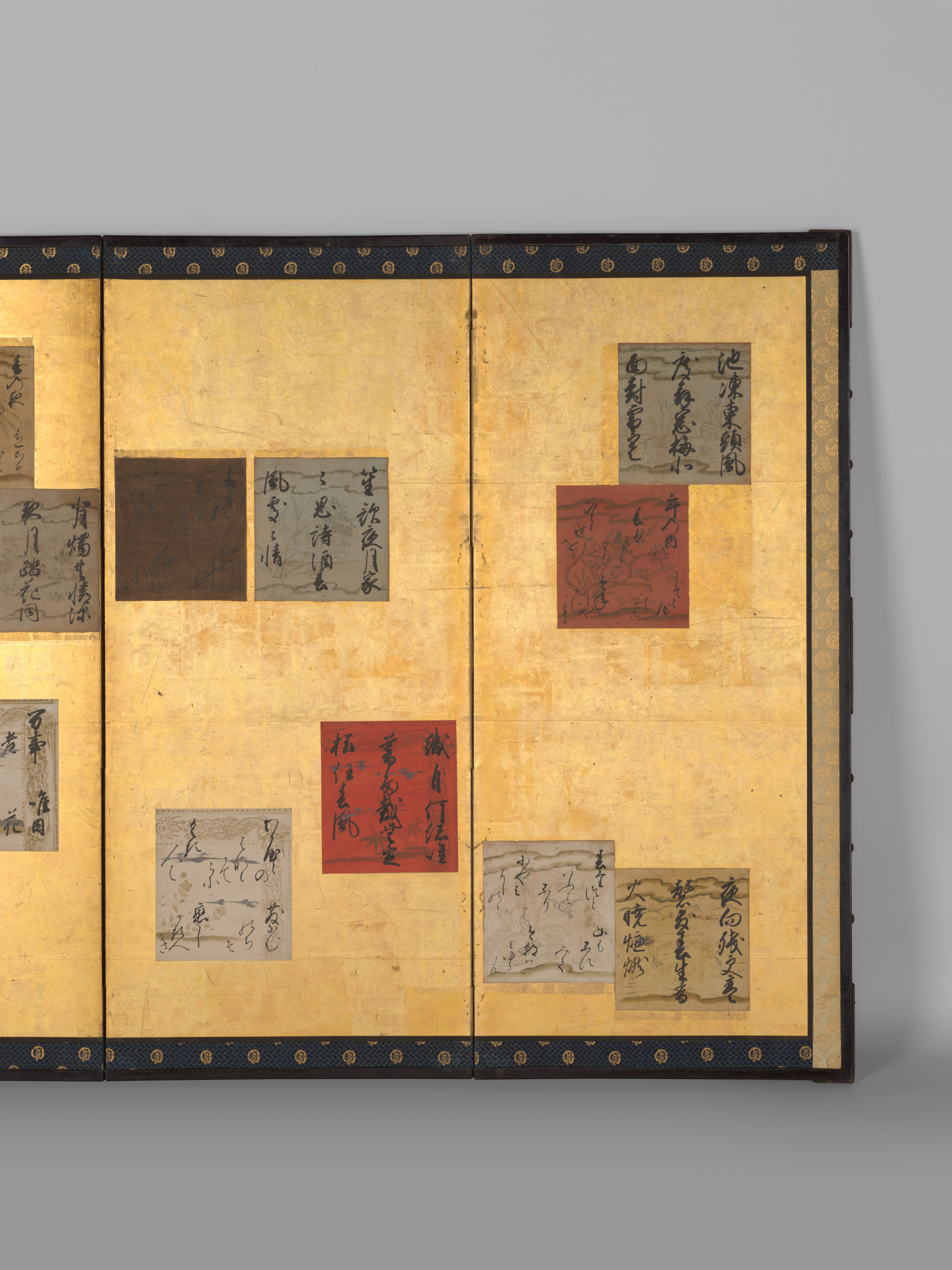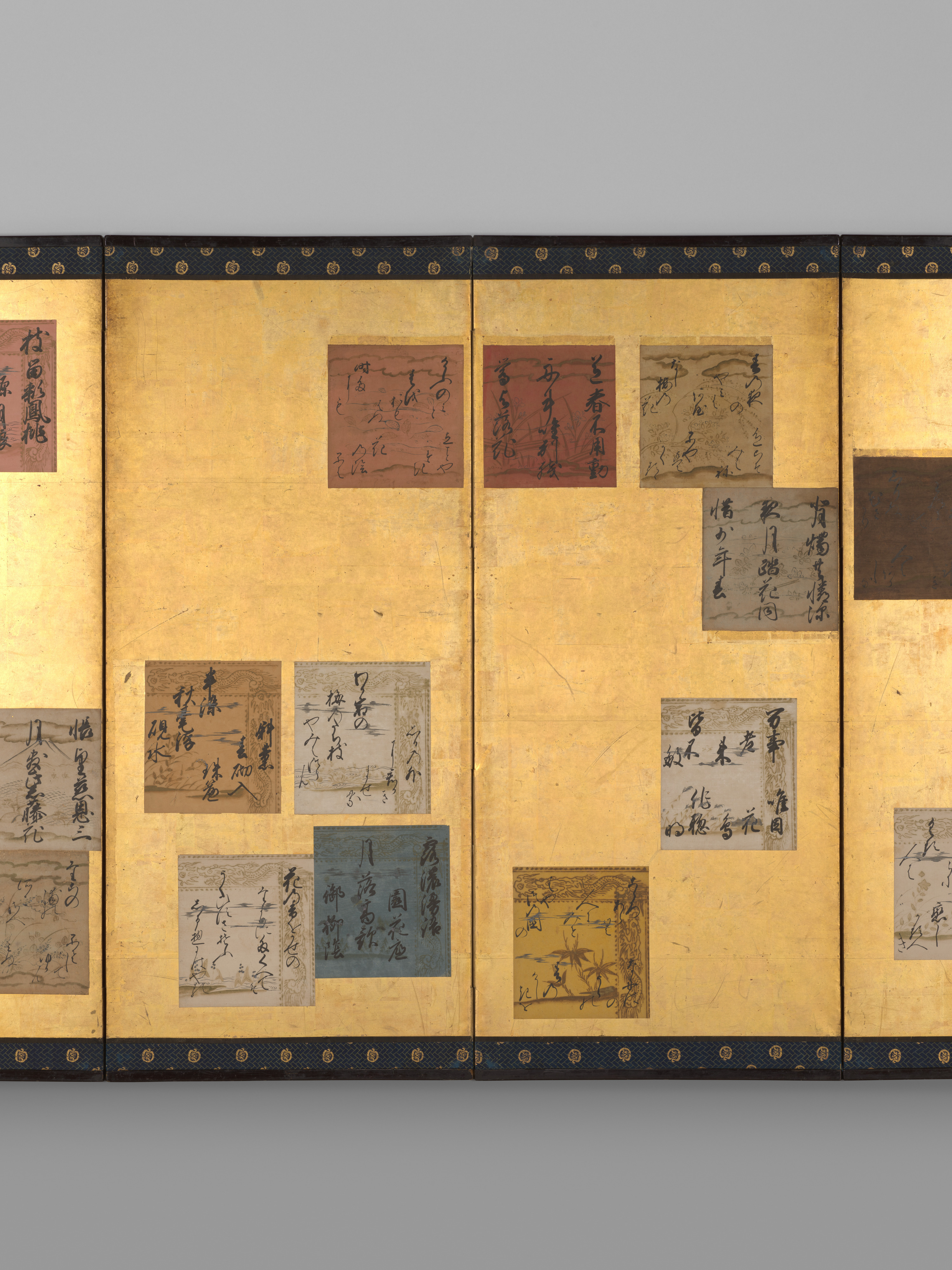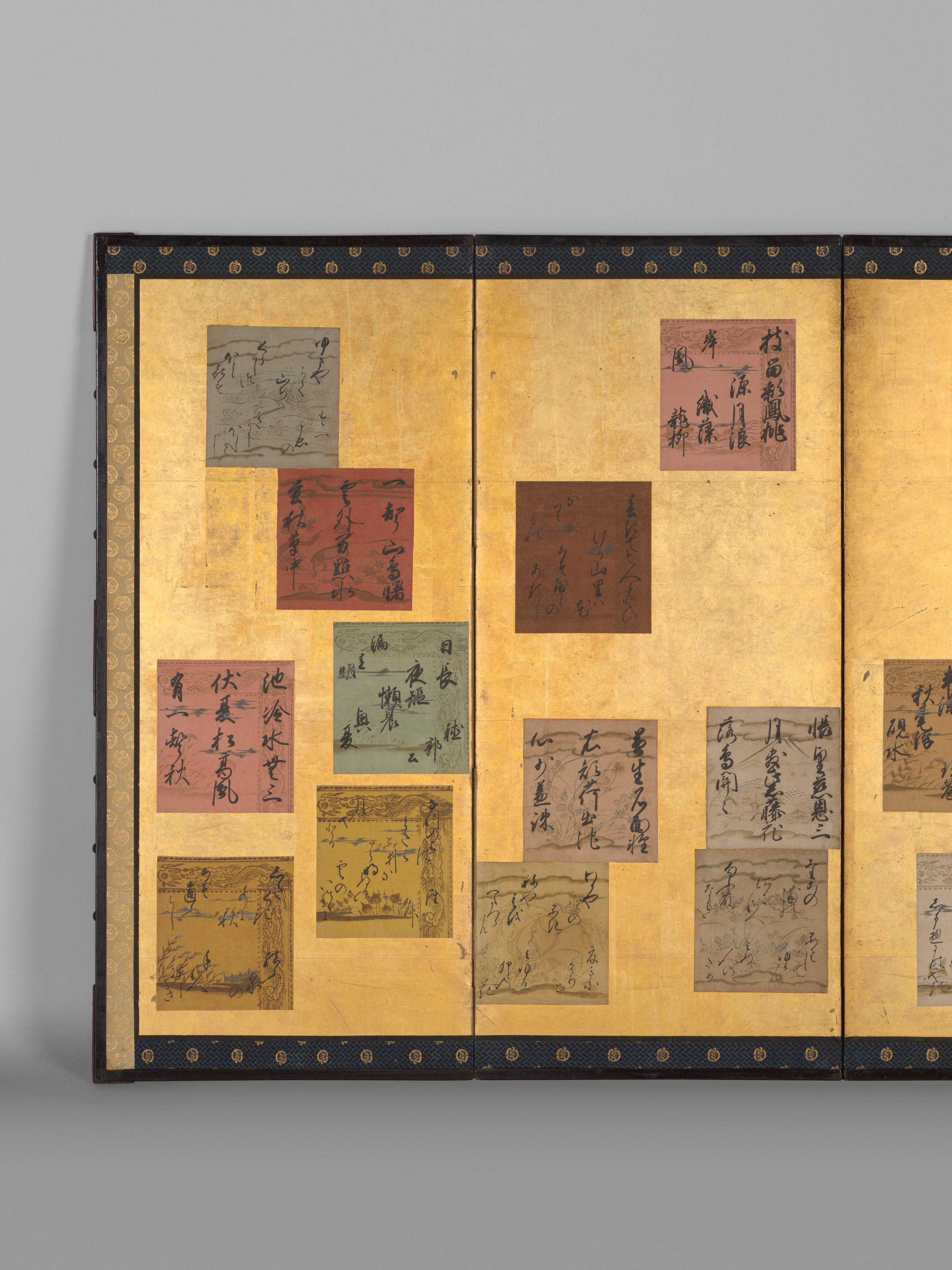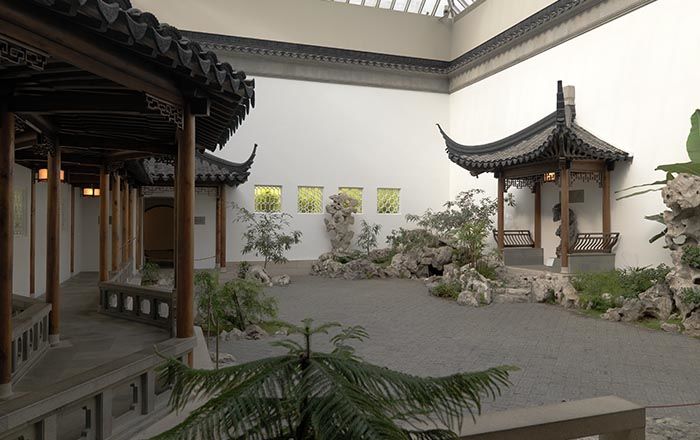Japanese and Chinese Poems of the Four Seasons
Attributed to Konoe Sakihisa Japanese
Not on view
Arranged in a staggered pattern across this pair of folding screens are sixty-six poetry cards (shikishi) on a marvelous variety of dyed papers. Their hand-painted decorations draw on a wide array of pictorial motifs. The shikishi are set into pairs that explore different aspects of a given theme, with one featuring a Japanese waka and the other a Chinese poem. The contents are personalized selections from the anthologies Japanese and Chinese Poems to Sing (Wakan rōeishū) and Collection of Poems Ancient and Modern (Kokin wakashū).
不酔黔中争去得 磨圍山月正蒼々
If you don’t get drunk,
how can you bear to depart for Qianzhong?
The moon above the Mount Mowei,
shines with a blue glow.
天の原 ふりさけみれは かすがなるみさかの山に 出し月かも
伝近衛前久筆 四季和歌と漢詩色紙貼交屏風
Gazing upward,
deep into the heavens—
is that not the same moon
that rises over Mount Mikasa,
over the plains of Kasuga?
池凍東頭風度解 窗梅北面雪封寒
The pond’s ice to the east
is thawed by the passing breeze.
Viewed through the window,
the plum to the north is sealed in cold by snow.
—Adapted from Jonathan Chaves
These lines are appropriately paired with a verse by the Heian period courtier-poet Ariwara no Motokata, which is famous as the opening poem of Collection of Poems Ancient and Modern (Kokin wakashū):
年の内に 春はきにけり ひとゝせを
こそとやいはむ 去年とやいはむ
Toshi no uchi ni
haru wa ki ni keri
hitotose o
kozo to ya iwamu
kotoshi to ya iwamu
Spring has arrived
before the old year has ended.
What then should we say —
call it “last year”
or call it “this year”?
—Trans. John T. Carpenter
On the left screen, at the bottom of the third panel from the right, the two poetry cards read:
不酔黔中争去得 磨圍山月正蒼々
If you don’t get drunk,
how can you bear to depart for Qianzhong?
The moon above Mowei Mountain,
shines with a blue glow.
—Adapted from Jonathan Chaves
天の原 ふりさけみれは かすがなる
みさかの山に 出し月かも
Ama no hara
furisake mireba
Kasuga naru
Mikasa no yama
ideshi tsuki kamo
Gazing upward,
deep into the heavens—
is that not the same moon
that rises over Mount Mikasa,
over the plains of Kasuga?
—Trans. John T. Carpenter
This image cannot be enlarged, viewed at full screen, or downloaded.
This artwork is meant to be viewed from right to left. Scroll left to view more.
